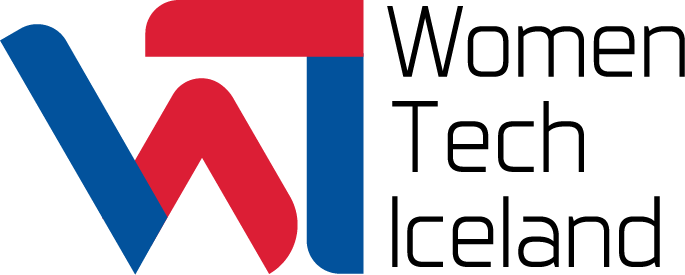Navigating the Current Backlash Against DEIB Worldwide: Insights and Reflections
WomenTechIceland and RIKK are collaborating on a 4-part discussion series on diversity, equity, integration and belonging (DEIB) in the tech space in Iceland and beyond. The third event focused on backlash and was sponsored by Marel.
Panelists included:
Charlotte Biering, Global Diversity and Inclusion Lead at Marel
Giti Chandra, Associate Professor at the University of Iceland
Ingibjörg Lilja Þórmundsdóttir, Chief Human Resources Officer at Helix Health
Joice Tae Ozaki, VP of Product at Controlant
The panel was moderated by Randi W. Stebbins, WTI board member and head of content at AGR.
In recent years, diversity, equity, and inclusion (DEIB) have taken center stage in both corporate and academic realms, sparking crucial conversations and initiatives. Yet, as these efforts progress, they inevitably encounter resistance and backlash. This resistance, however, is not necessarily a sign of failure, but rather an indicator of the significance of the work being done. Let's delve into the current state of the DEIB landscape, exploring insights and reflections shared by the panelists.
The Complexity of Backlash
The backlash against DEIB efforts manifests in various forms, from skepticism about the sincerity of corporate initiatives to challenges in implementing inclusive practices. As Giti Chandra observes, "If there is a backlash, you know you are doing something right. It is a good thing or at least an indicator." This sentiment reflects the idea that resistance often accompanies meaningful change.
Corporate Realities and Optics
In the corporate sphere, DEIB initiatives have often been perceived as superficial, focused more on optics than genuine cultural change. Charlotte Biering highlights this concern, noting that "DEIB needs to be embedded at every step." She emphasizes the importance of authenticity, urging organizations to avoid making promises they can't keep. Furthermore, as Randi Stebbins points out, the media's portrayal of DEIB efforts often skews toward negative narratives, overshadowing successes and progress.
Challenges and Opportunities
Amidst the challenges, opportunities for growth and transformation abound. However, execution remains a significant hurdle, with a lack of standardized frameworks hindering progress. Joice Tae Ozaki emphasizes the need for a clear framework, stating, "We are missing how to tie this to the ROI of the company. There is no framework or template that people can refer to."
Joice shared an anecdote from the gaming industry: In the world of gaming, a previous employer wanted to improve character diversity, but they faced a tricky question: how much representation would be accepted by their player base? Their research suggested a tipping point. According to their focus groups from a decade ago, if more than 25% of the game's characters were diverse, players might be less inclined to play. Giti shared that a similar pattern was evident in the movie industry. This delicate balance between diversity and audience acceptance illustrates the complex challenges involved in promoting inclusion in entertainment industries.
In Charlotte’s experience, Icelanders are inclusive, as long as you are in the group. If you ask the group/organization themselves, you might not get the true picture. Self evaluation isn’t necessarily the best way to measure inclusivity.
Moving Beyond Performative Actions
To truly affect change, DEIB initiatives must move beyond performative actions and become ingrained in organizational culture. In Iceland we need to think about diversity in a wider perspective. A lot of work still needs to happen. Ingibjörg Lilja Þórmundsdóttir stresses the importance of education and leadership, saying, "It's not only HR's responsibility, we have to normalize it." This sentiment underscores the need for collective responsibility in fostering inclusive environments.
There's a common misconception that if DEIB initiatives fail, it reflects poorly on the entire concept of diversity, equity, inclusion, and belonging. The truth is, the failure often lies in the design or implementation of those specific initiatives, not in the fundamental principles of DEIB.
Avoid placing undue burdens on women and other diverse individuals by expecting them to take on extra work to drive DEIB efforts. It is the collective responsibility of the entire organization to promote and sustain diversity and inclusion.
The Role of Leadership and Education
Leadership plays a pivotal role in driving DEIB efforts forward. Ingibjörg emphasizes the need for continuous training and dialogue, "Creating a culture that is open and educating people." Furthermore, Randi highlights the importance of acknowledging the contributions of diverse talent, stating, "Retaining is just as important as the hiring process."
Retention is crucial in sustaining DEIB initiatives. Charlotte underscores this point, saying, "You want people to leave for good reasons and to speak well about the organization to others." This highlights the importance of creating environments where diverse talent feels valued and supported.
What motivates you?
As a last question, the panelists shared what motivates them to continue their work towards a more inclusive world. The panelists agreed that despite backlash the work creates unity and solidarity. And having a sense of making a difference is a true driving force for all the panelists.
Conclusion
The current backlash against DEIB initiatives underscores the importance of perseverance and solidarity in driving meaningful change. As we navigate through the challenges, it becomes evident that true progress requires dedication, empathy, and a willingness to confront discomfort head-on. By challenging existing norms, engaging in dialogue, and prioritizing genuine inclusion, we can continue moving towards a more equitable future for all.
